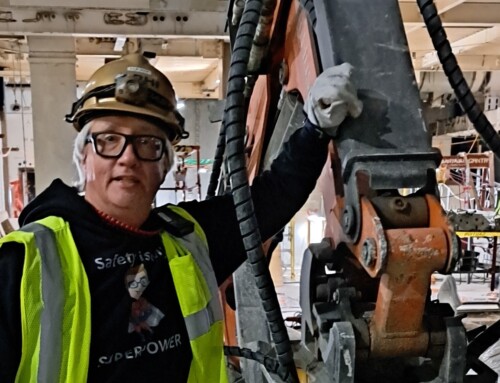“What’s done is done.” “There’s no use crying over spilled milk.” “It’s like closing the barn door after the horse gets loose.” These common sayings express how many people feel about incident investigations—particularly busy supervisors who have production schedules to follow.
Safety leaders realize that incident investigations, when done well, are worth the effort. In the long, run they can save oodles of time. That’s why the rest of this section will not focus on the importance of conducting an accident investigation, but rather what you as a safety leader can do and say to convince the workforce that, as a general rule, all accidents/incidents should be considered candidates for a thorough investigation.
considered candidates for a thorough investigation.
Put Yourself in Their Place
Incident investigations may be an intrinsic part of your job. This is not so for most supervisors. When half their day is spent filling out an incident form, interviewing employees, or working with the safety department to uncover root causes, supervisors tend to feel that all that time was “nonproductive.” Since merit raises, performance appraisals, and other rewards most likely are based on completed tasks, it’s understandable why this attitude prevails. “But we include safety in our supervisors’ performance appraisals.” If that’s true, great. Still, honestly consider whether safety performance is weighted as heavily as the production portion. Even if it is, is it perceived that way by the supervisors?
What does this all mean? That you should at least acknowledge that an incident investigation will slow down a supervisor’s work schedule. Just the fact that you let him know you understand the situation will go a long way to stimulating cooperation.
Educate and Train
Many incidents are considered minor because their consequences are not serious. Serious incidents arise from the same hazards as minor ones. Often sheer chance determines whether a hazardous situation results in a minor incident or a serious one. Educate supervisors of this fact, as well as other issues concerning incidents.
Don’t stop there. Spend time training supervisors how to conduct investigations. If supervisors are not required to conduct investigations (even of minor incidents), then train them how to collect information, keep the accident scene intact, fill out a supervisor’s report, and do whatever else they are required to do.
You may be able to say truthfully, “It’s all in our safety manual, and I’ve sent out memos on what’s required.” This means the information is “out there,” but it doesn’t mean it’s been read or that anyone has been trained how to fulfill their obligations. Why not give a brief “how-to” session for your supervisors on incident investigations?
Have Examples Ready
If a supervisor were to stop you in the parking lot today and ask if you can prove that incident investigations are worth the effort it takes to conduct one, would you answer, “Yes” and could you then go on to give examples? Just because you’re the safety “expert” doesn’t mean you’re always right or that you don’t need to justify a policy. Even one example of how a past investigation resulted in a positive change in the workplace will solidify your answer.
Make It Easy
According to the National Safety Council’s Accident Prevention Manual for Industrial Operations, “The supervisor…probably knows more about the accident than anyone else.” Most safety professionals agree with this and look to the first-line supervisor for the initial information about an accident.
The easier it is for the supervisor to give this information, the more likely he or she will get around to doing it. It’s especially important to keep the process simple if you expect supervisors to report near misses. Look at your present process through the busy supervisor’s eyes. Must the field report be two pages? Are there superfluous requests on the report? And how tight is the text? Does it look like it will take a lot of time to fill out the form? These trifles make a difference because the more complicated the process looks (or is), the more likely it will cause a supervisor to balk.





